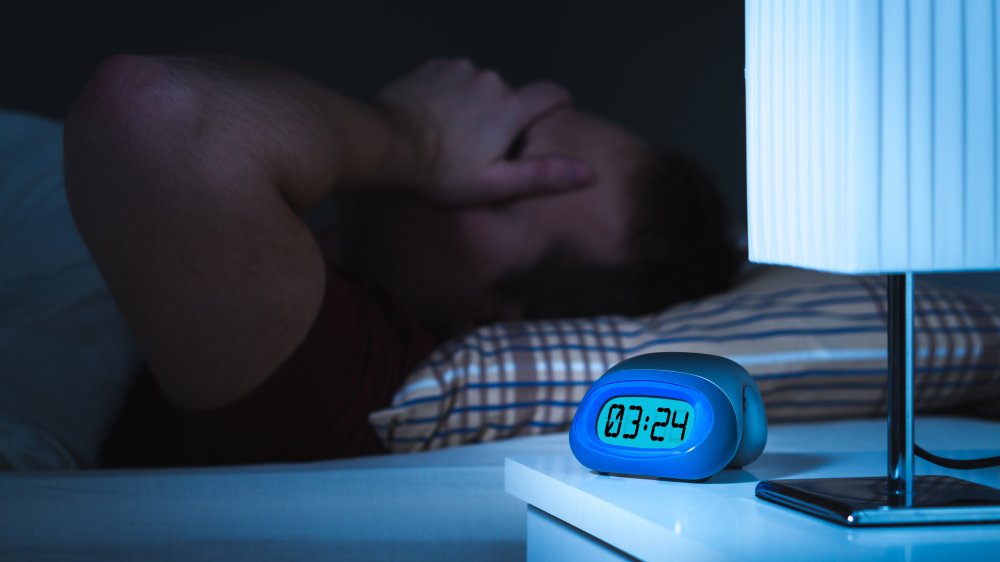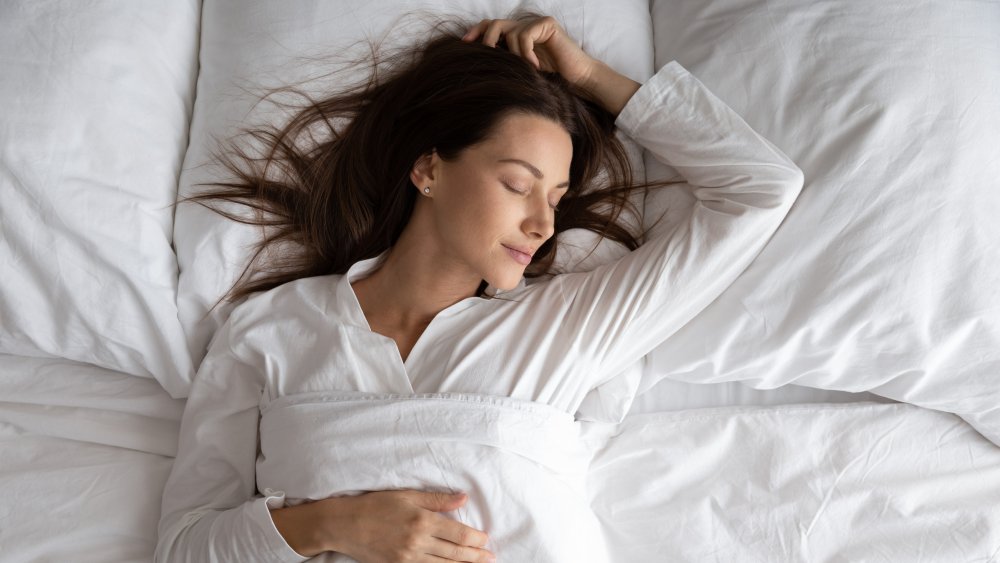Why You Always Seem To Feel Worse At Night When You're Sick
We all know the misery of a bad cold. And never is it worse than at night, when symptoms seem to flare just as you need to get some restful sleep. It's not all in your head (that's just congestion).
The culprit, it seems, is the same thing that regulates your body's sleep-wake cycle: your circadian rhythm. While it tells you when it's time to wake and when it's time to wind down, it's also responsible for regulating your immune system, according to TIME. The immune system fights off infections with the help of the hormone cortisol. This hormone is closely related to stress levels, including the kind your body is under when it fights off a cold, according to Florida's Intercoastal Medical Group.
During the day, cortisol levels are higher in the blood, and they drop at night, which wakes up the immune system. Your body increases the production of chemicals that fight the infection, but at the same time, they also cause some inflammation, making symptoms worse.
Michael Smolensky, biological rhythm researcher and professor at the University of Texas, told TIME that the spike in immune system activity remains overnight and can continue into the morning. That's why you often also feel worse when you first wake up.
How to get the best rest
So, if the sensation of being sicker at night is real, and not imagined, how are we supposed to sleep? There are a few tips and tricks that can help, according to WebMD. If you're dealing with upper respiratory congestion, then use pillows to prop yourself up so mucus can drain. When it pools in the throat, it can cause sore throat and cough, which will only keep you awake.
Consider using a humidifier to moisturize the passages in your airway. This will provide comfort and could help you breathe easier. Don't drink alcohol before bed, either, as it interferes with real rest. It may make you sleepy at first but overnight it slows breathing and causes restless sleep.
There is a bevy of over-the-counter cold and flu medicines which may help suppress symptoms and even help you fall asleep. Don't be afraid to use these, according to package instructions, to provide comfort during the night.
It's real that you feel worse at night. Nonetheless, good rest is important to healing, so be sure to be intentional and proactive about treating symptoms and trying to get a solid night's sleep.


